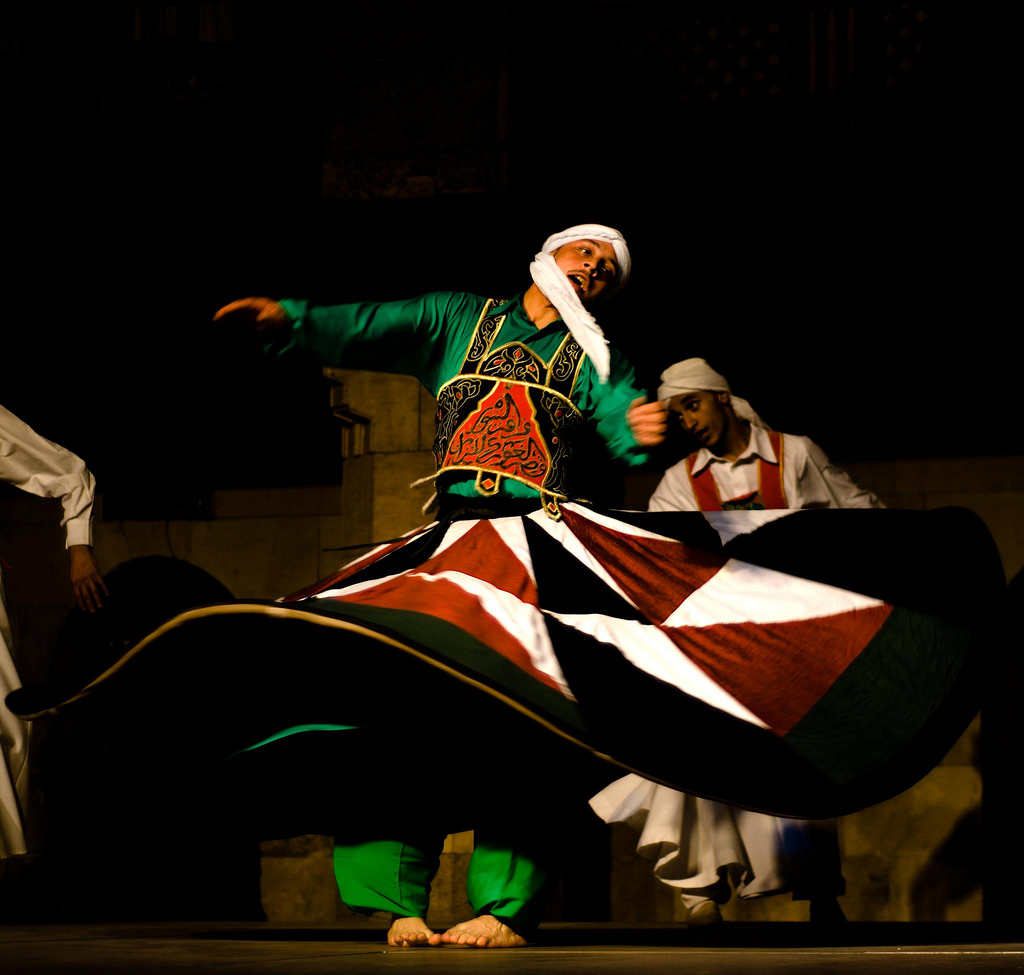by Islam El Shazly
Since we are in the early days of the month of Rabie’ Al Awwal, the third month of the Islamic Hijri Calendar, I thought it might be appropriate to write about the celebration of the Prophet’s (صلى الله عليه و سلم) birthday or Al Mowled Al Nabawi.
In every travel book that I read there’s a mention of Al Mowled, not just the Prophet’s (صلى الله عليه و سلم) but also for every so called “Saint” in Egypt. We have no sainthood in Islam, but that is a topic for another time insha’Allah.
According to Wikipedia these are the possible origins of Birthdays: A number of possible superstitious origins for customs associated with Birthday celebrations have been suggested. One source states, that the tradition of birthday parties started in Europe a long time ago. It was feared that evil spirits were particularly attracted to people on their birthdays. To protect them from harm, friends and family would to come be with the birthday person and bring good thoughts and wishes. Giving gifts brought even more good cheer to ward off the evil spirits. This is how birthday parties began. In ancient times, people prayed over the flames of an open fire. They believed that the smoke carried their thoughts up to the gods. Another reference comments, “The various customs with which people today celebrate their birthdays have a long history. Their origins lie in the realm of magic and religion. The customs of offering congratulations, presenting gifts and celebrating – complete with lighted candles – in ancient times were meant to protect the birthday celebrant from the demons and to ensure his security for the coming year. . . . Down to the fourth century Christianity rejected the birthday celebration as a pagan custom.”
Rites of passage have been around for hundreds of years, but no birthdays by today’s standards, that one came when Christians started celebrating the birth of Jesus every year, followed by celebrating saints. Now a large percentage of people all over the world celebrate birthdays.
Back to the main topic; the Prophet (صلى الله عليه و سلم) Birthday.
The date: 8th of Rabie’ Al Awwal, 362 AH (17-12-972 CE).
The place: Cairo, Egypt.
The news: The first celebration of the Prophet’s (صلى الله عليه و سلم) birthday.
The Fatimids have been facing a lot of difficulties and opposition in the lands that now make up Morocco, Algeria, and Tunisia. The Fatimid Caliphs needed a new land that would house their seat of power, the best option was Egypt; it had a central location within the greater Muslim Empire, and it was troubled, like most lands that were under Abbasid rule. The Abbasids Caliphs were getting weaker one Caliph at a time.
Gawhar Al-Siqilli, general of the Fatimid army managed to finally break through Egyptian defenses and take it by force in Sha’aban 357 AH (972 CE). Over the next four years he would build the city known as Al Qahirah, Cairo.
Al Mo’ez Al Fatimi was a very intelligent man, he knew from the start that he would have a tough time in Egypt, for the most part because the difference in belief. The people of Egypt were (and still are) Sunnis, they have no room for Ismailia or Shiites. That could prove problematic. However, he also realized that best way to win the hearts of the Egyptian people was to prove that the Fatimids are loyal to the Prophet (صلى الله عليه و سلم) and his family. The Egyptians to this day are fiercely loyal to the Prophet (صلى الله عليه و سلم) and his family. He invented the celebrations for the Prophet’s (صلى الله عليه و سلم) birthday and made it paramount to the only two Muslim celebrations, Eidul-Fitr and Eidul-Adha.
He lavished the people with lots of gifts and money, put up decorations, made banquets for the poor, and paraded his troops in all their glory for the benefit of the people. The commoners loved him. It happened at a time of drought, so all the money and food came in quiet handy and the people approved the newest thing in town. Al Mowled. It was held on the 8th of Rabie’ Al Awwal, then there was a dispute over the actual date of birth, so they moved it to the 12th.
This new fad went on in Egypt only practiced by the Fatimid and the people of Egypt until the sixth century Hijri, when it found its way to an Ayubid prince, one Al Mothaffar Abu Said Ibn Zainu-din Kawkabry, the Prince of Arbel. He was good natured with a lot of good deeds under his belt, except he had a soft spot for Sufis, and one Sufi convinced him of all the nice things about the celebration and he bought in. Kawkabry ordered the Al Mowled be celebrated every year and he took it to a whole new level. 5,000 grilled sheep, 10,000 chicken, 30,000 plates of sweets, and spent 300,000 Dinars every year on the celebrations. Those were gold Dinars. As such, Sufis poured into Arbel for the celebrations, and from there go back and spread the word in their homelands. It spread to the rest of the Muslim world.
These are the origins of Al Mowled, innovated by the Fatimids whose animosity towards Muslims is well documented in history books, and their sole reason was not the love of the Prophet (صلى الله عليه و سلم) – they cared nothing for him – was political, to win the hearts of Egyptians.
A lot of Muslim countries all over the world celebrate Al Mowled, some more extravagant than others, but they all share the basics.
Last but not least, the scholars of the Muslim world from the time Al Mowled came into existence fought against it, and they all agreed that it was unacceptable.
The first half of this article was written by me as an introduction, and the second half was translated from the original Arabic article with references is published here.
Tags: Cairo, Celebration, Egypt, Fatimid, mooled, Mowled, Mulid, Nabawi, Nabi, Origins, Prophet, Sufi










Thanks Peter, I’m glad you liked it 🙂
This is a very informative post. I took ‘birthdays’ for granted, but didn’t realise it was a specifically western / christian thing. Very interesting.
have fun,
Peter